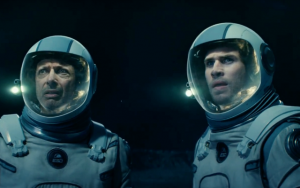Metro In Focus: Superheroes Save Your World… Again and Again and Again.
By Richard Crouse – Metro In Focus
In today’s world it’s not enough to simply be a hero. Now you must be a superhero. Unlike the old days when square-jawed movie stars rescued damsels in distress or battled cold-hearted landlords, today’s champions won’t get out of bed for anything less than the threat of complete world annihilation. Liberating a cat from a tree or performing the Heimlich Maneuver is considered HeroLite™, the work of lesser lifesavers.
Today it’s all about averting the apocalypse. In Captain America: Civil War the idea of how to police and ultimately save the world is at the heart of the action and X-Men: Apocalypse’s bad guy has grandiose plans to “cleanse mankind and create a new world order.”
This weekend the heroes of Independence Day: Resurgence join Mystique, Quicksilver, Leonardo, Raphael, Michelangelo, Donatello, Captain America and legendary do-gooders Batman and Superman in some good, old fashioned world saving.
The twenty-years-in-the-making sequel to Will Smith’s mega-hit sees aliens from outside the Solar System attack our planet. It’s life and death on a planetary scale, a premise that has become increasingly popular in recent years.
It’s not a surprise the stories are getting larger and louder. Audiences want a big bang for their buck and Hollywood is pleased to oblige with high stakes situations that provide frenetic action and happy endings (unless, of course you’re rooting for the bad guy). These days Hollywood also looks to overseas markets for mega-revenue and presenting globe-spanning stories helps to attract crowds in other countries.
Business aside, why have audiences embraced world-on-the-brink movies?
Films, says Dr. Norman Holland, Marston-Milbauer Eminent Scholar Emeritus at the University of Florida, work on different parts of your brain.
“The parts that turn off are the parts that plan action because you’re not going to act on what you see on the screen in front of you,” he says. “You turn off the systems that plan, that look ahead that evaluate futures. That explains the phenomenon of the willing suspension of disbelief. You accept the most improbable things, like Stars Wars or Spider-Man or whatever. At the same time the lower centres of your brain are generating emotions like mad in response to what you’re seeing. This is the peculiar phenomenon that you can feel and care about these people on the screen while at the same time knowing they are nothing but a fiction.”
In other words, it’s what legendary purveyor of thrills Alfred Hitchcock said. “People like to be scared when they feel safe.”
We live in unsettling and troubled times and going to the movies can provide an escape. In these heroic tales good almost always wins out, a comforting antidote to the nightly news where stories often don’t have happy endings. It makes us feel good, but, as Dr. Holland notes, it’s also restful.
“As you know they are redesigning movie theatres with recliner chairs so you can sleep through the movie,” he says. “Yes, it is relaxing. This is the part of your brain that worries, that plans for the future, that is concerned about the state of your body. All that shuts down. It’s restful, no question.”
Going to the movies is restful? Good for us? Seems like in our busy, stressful world it’s the films that are the heroes, not the characters.

